Food culture has gotten out of control. At least, that’s what the filmmakers behind the delightfully upscale satire The Menu seem to think. There’s no aspect of haute cuisine that this movie doesn’t brutally stab and serve to audiences on a skewer, which is why it was one of the most satisfying and critically acclaimed films of 2022.
Ralph Fiennes stars as celebrity chef Julian Slowik, a character who oozes charm and instills fear in both his staff and guests. On this particular night, Julian has a very sinister surprise in store for his dinner guests, and we’re not just talking about sea blobs served on a slab of rock.
As the action progresses, viewers realize that Julian has it out for his guests, who include a snooty food critic and her lapdog editor, a former movie star and his superficial assistant, a trio of icky frat boy businessmen, wealthy regulars who take the normally once-in-a-lifetime experience for granted, and Tyler Ledford, a self-proclaimed foodie who doesn’t actually know anything about food.
Oh, and then there’s Tyler’s date, Margot Mills (Anya Taylor-Joy), who wasn’t even supposed to be there that night.
Everyone’s a critic, and Julian is sick of it. His humble burger-flipping days may be long gone, but the chef hasn’t forgotten that at the end of the day, he’s a server, and his “guests” are his masters. Now that he’s reached the pinnacle of success with his private island restaurant, Hawthorn, there’s simply nothing left for him to achieve, so why not go out in a blaze of glory? After he makes Margot one last cheeseburger, that is.
There’s so much to love about this movie! We love the unflinching social commentary, the way the film separates the “haves” from the “have nots,” and the way it exposes ugly truths about the world in which we live. Movies with bite are the best kind, so here are a few more movies to sink your teeth into if you loved The Menu.
It Follows (2014)
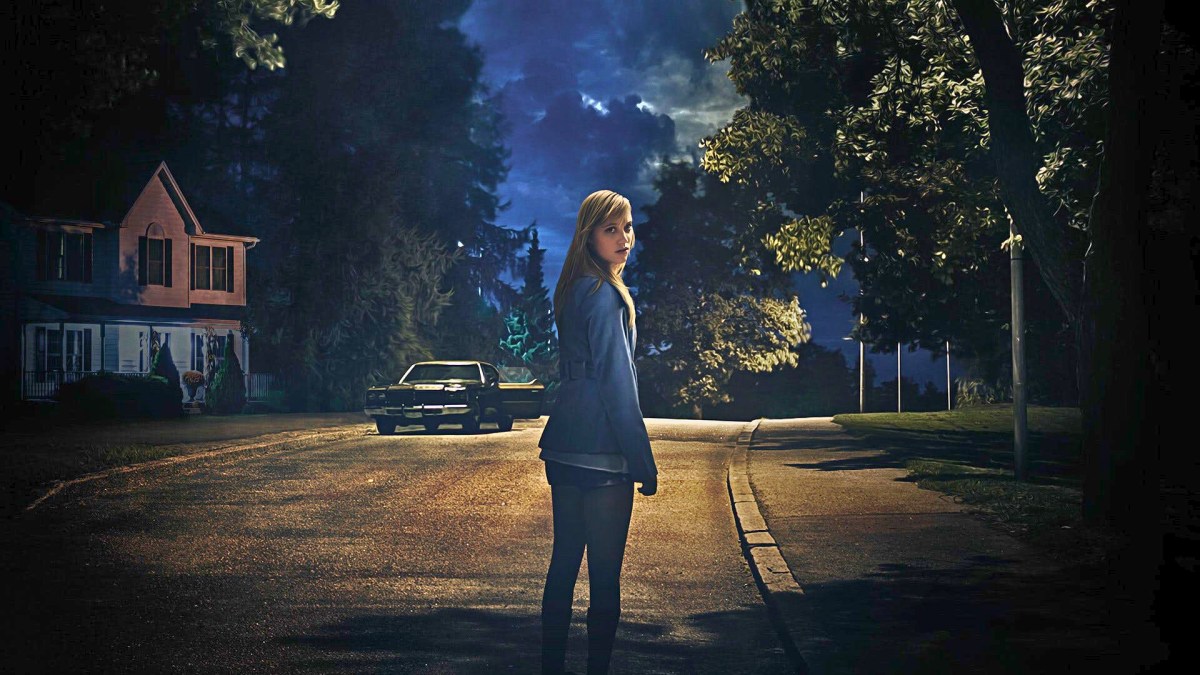
Every horror movie fan knows that teenagers having sex is a surefire way to invite a serial killer into their lives. It’s an old trope but a good one, and it’s the basis of this 2014 horror film written and directed by David Robert Mitchell.
Jay, played by Maika Monroe, hooks up with Hugh (Jake Weary), but the encounter doesn’t end there. Hugh abducts Jay and breathlessly conveys a terrifying secret that would have really come in handy before they had sex—Hugh confides that he passed on a bizarre sexual curse to Jay. From that day forward, Jay will be followed by someone, either a stranger or someone she knows. They might not move quickly, but they will slowly and surely make their way to her, and bad things happen if they actually reach her. The only way to break the curse is to have sex with someone else and give it to them.
Naturally, this film feels like an allegory about the dangers of casual sex, including the “curse” of passing on sexually transmitted diseases to others. But there’s something else, too. There’s the fact that reaching adulthood, which one could argue coincides with becoming sexually active, means realizing that death is always looming. The movie leaves watchers with a vague, haunting feeling of inevitability that sticks around long after the credits roll.
Ready or Not (2019)
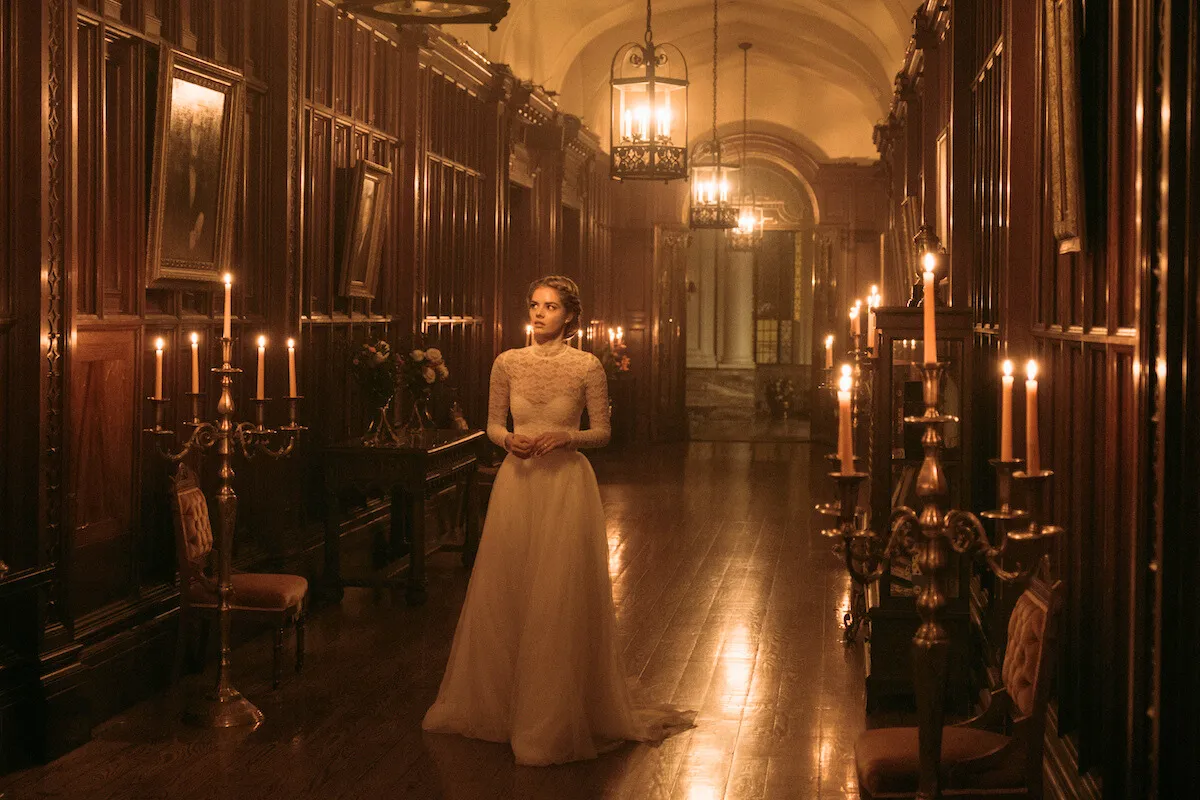
Ready or Not tells a darkly fun and exciting story in about 90 minutes, which suits our short attention span just fine. It stars Samara Weaving as Grace, a bride-to-be from the wrong side of the tracks who is visiting fiance Alex’s (Mark O’Brien) family at their sprawling manor, Le Domas, for their wedding.
The Le Domas family makes board and card games, which is how they (ostensibly) amassed their vast fortune. So, perhaps it makes sense that Grace has barely settled in when she learns that everyone who sets foot in Le Domas must play a game. As a guest of honor, Grace gets to pull a card to select the game. The gasps from gathered family members tell viewers all they need to know about the game Grace pulls, which is “hide and seek.”
Still thinking it’s really a game, Grace hides in a dumbwaiter for long enough to see Alex and his family pulling medieval weapons from the walls of the estate and determinedly marching off … hunting for her. The gravity of her situation sinks in when she witnesses a real-life murder, and she realizes she’ll be next unless she goes full “Kill Bill” on her new in-laws.
This movie deals with much more than just rich versus poor; it also tackles the inherent trust we’re supposed to feel when joining a partner’s family. It’s about knowing when to try to fit in … and when to put up your dukes.
Infinity Pool (2023)
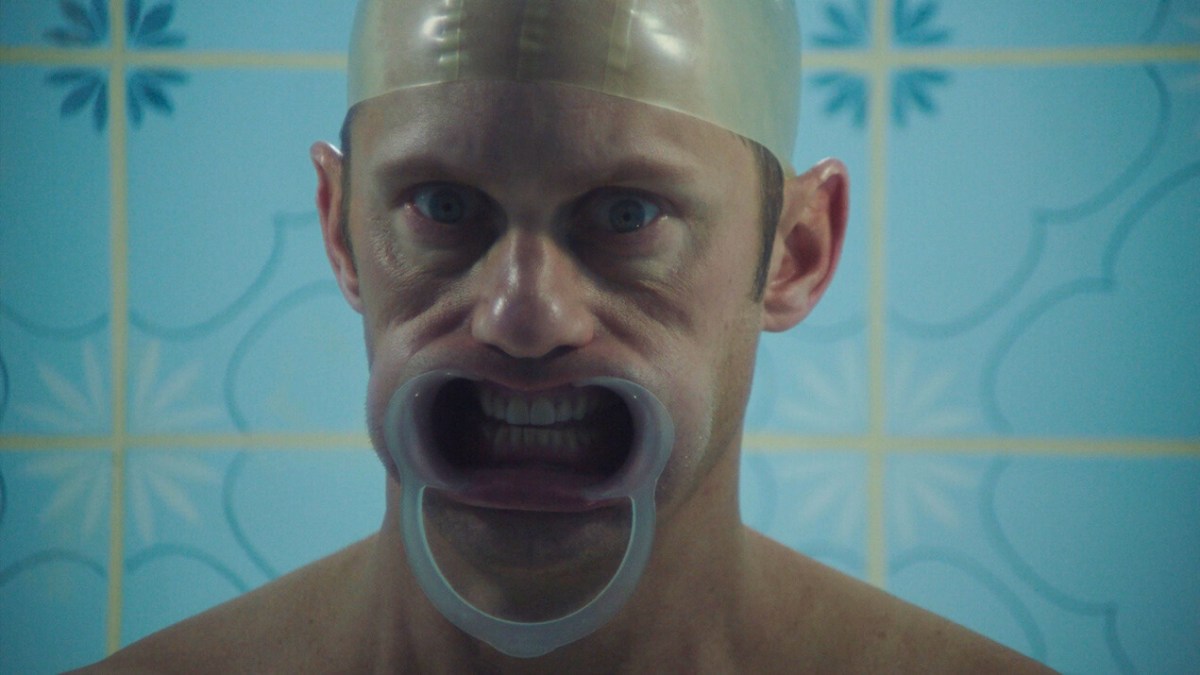
There’s so much to unpack in Infinity Pool, but for the sake of brevity, we’ll ask just one question: What would you do if there were zero consequences for your actions?
In Brandon Cronenberg’s sci-fi horror film, the idea that rich people can buy their way out of any situation is on center stage. The story begins with a dried-up author called James (Alexander Skarsgård) lounging at an upscale resort with his partner, Em (Cleopatra Coleman). Em is footing the bill for the vacation because James hasn’t penned a new book in over 6 years, but that doesn’t stop him from eyeing up a sexy stranger named Gabi, played by the always riveting Mia Goth.
When Mia and a friend lure the couple off the resort grounds everything goes wrong, and fast. James accidentally kills a man, and local authorities insist that the dead man’s son has to kill James. The good (?) news is that they’ve developed a way to clone people, so James can watch his own clone be murdered and walk away scot-free if he wishes.
Of course, that’s what James wishes. Once that pesky morality and fear of consequence is removed, James and the other rich people can let their basest impulses run amok. That’s when things get really sticky because who’s going to keep an eye on all of those clones?
American Psycho (2000)

There are few characters more recognizable than Patrick Bateman, the titular psycho in the satirical psychological thriller based on the Bret Easton Ellis novel American Psycho. In the film, Bateman (Christian Bale) is a slick investment banker living in uber-materialistic New York City in 1987. His main concerns are maintaining a pristine physical appearance, eating at the hippest restaurants, and impressing his fiance and equally shallow friends and coworkers. He blows off steam by listening to Huey Lewis and the News, playing racquetball … and murdering people.
On its surface, American Psycho is a story about a serial killer who hides in plain sight, but the deeper meaning connects with themes like society’s desensitization to violence and our collective vapid consumption of style and culture.
Parasite (2019)

Few modern films explore the juxtaposition between socio-economic classes better than Parasite. This Academy Award winner introduces viewers to the Kims, a South Korean family barely scraping by in a squalid basement apartment. One by one, they manage to infiltrate the household of the Parks, a wealthy family, never letting on that they are related to one another.
The Kims feed off of the Parks, hence the title, but nothing good lasts forever. Their employment provides a temporary respite from poverty, but a series of unhinged events lands the poor Kims in worse shape than where they started. It’s a tragic tale of wealth disparity that paints a sad picture, one that asserts that for some people, there’s no way to improve their lot in life. The poor are doomed to stay poor, and the rich will likely not even notice their struggle, even when it happens in their own homes.
The Perfect Host (2010)
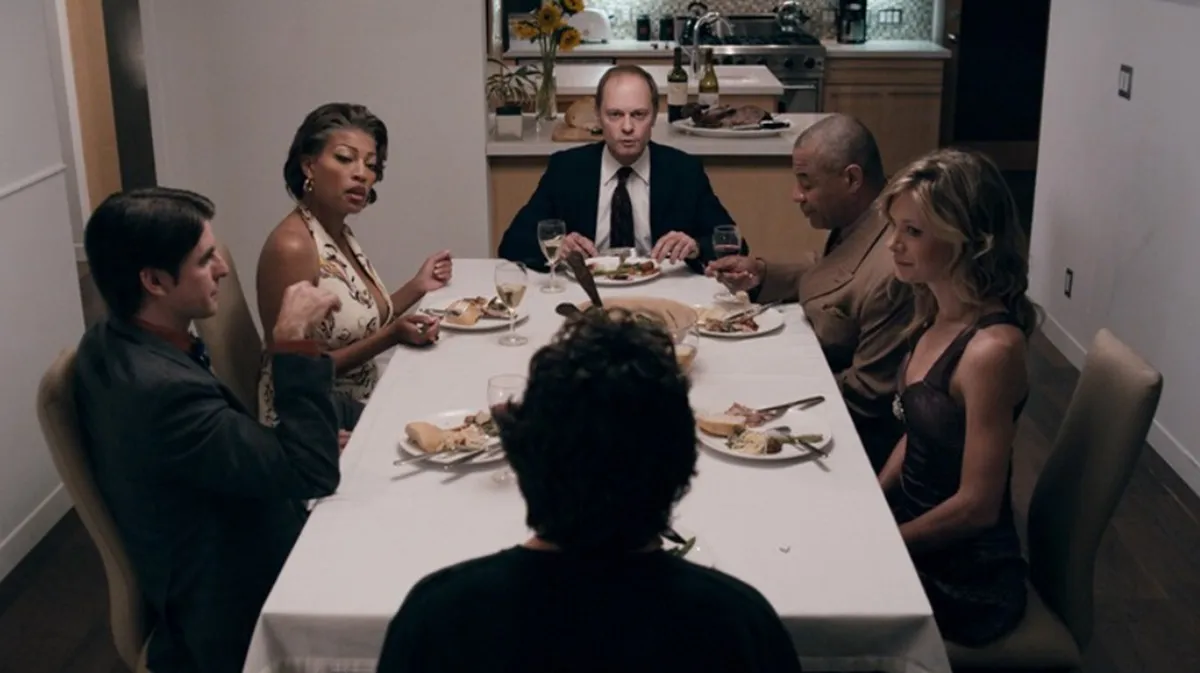
This may not be a traditional horror movie, but this psychological, darkly comedic thriller features Frasier‘s Niles Crane as you’ve never seen him before. David Hyde Pierce plays Warwick, an upper-crust homeowner who opens the door to an unexpected stranger one night. John, who just robbed a bank, stumbles into Warwick’s swanky home just in time to join Warwick’s impending dinner party. All that’s missing is the guests.
Viewers aren’t sure who to believe as Warwick and John attempt to figure one another out. Just when we think we know what’s going on, the tables turn, leading to a big surprise for John and the other “guests.”
The Babadook (2014)
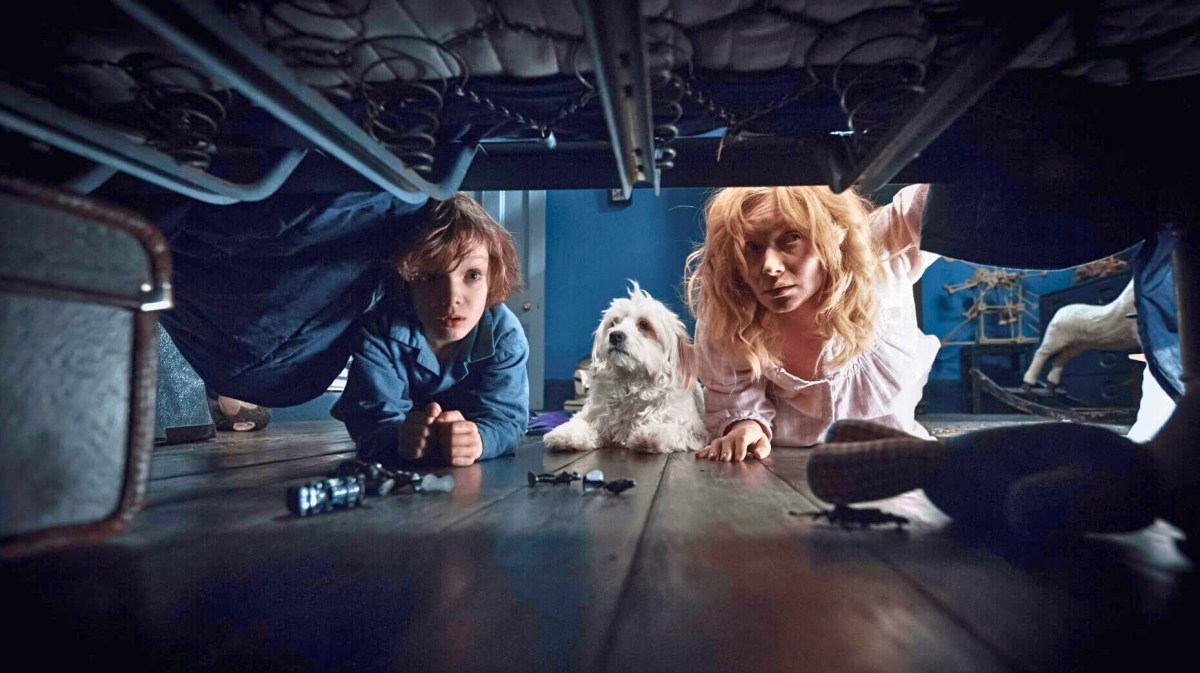
The Babadook is a monster who lives in the heart of anyone who has ever experienced grief. We can never be fully rid of the Babadook, but we can learn to live with him.
This is just one of the many deeper themes in this excellent horror thriller, which also touches on concepts like mental illness and the difficulties of parenting, with or without a partner. The plot centers around a mother and son living an isolated life that is more than a little bit codependent. Amelia (Essie Davis) lost her husband on the way to the hospital to give birth to their son, Sam (Noah Wiseman). She’s been going it alone for many years, and Sam isn’t exactly the easiest kid to raise.
The discovery of a scary book called The Babadook leads Amelia to lash out at her son, reminding viewers how powerful grief can be when left unchecked.
Midsommar (2019)
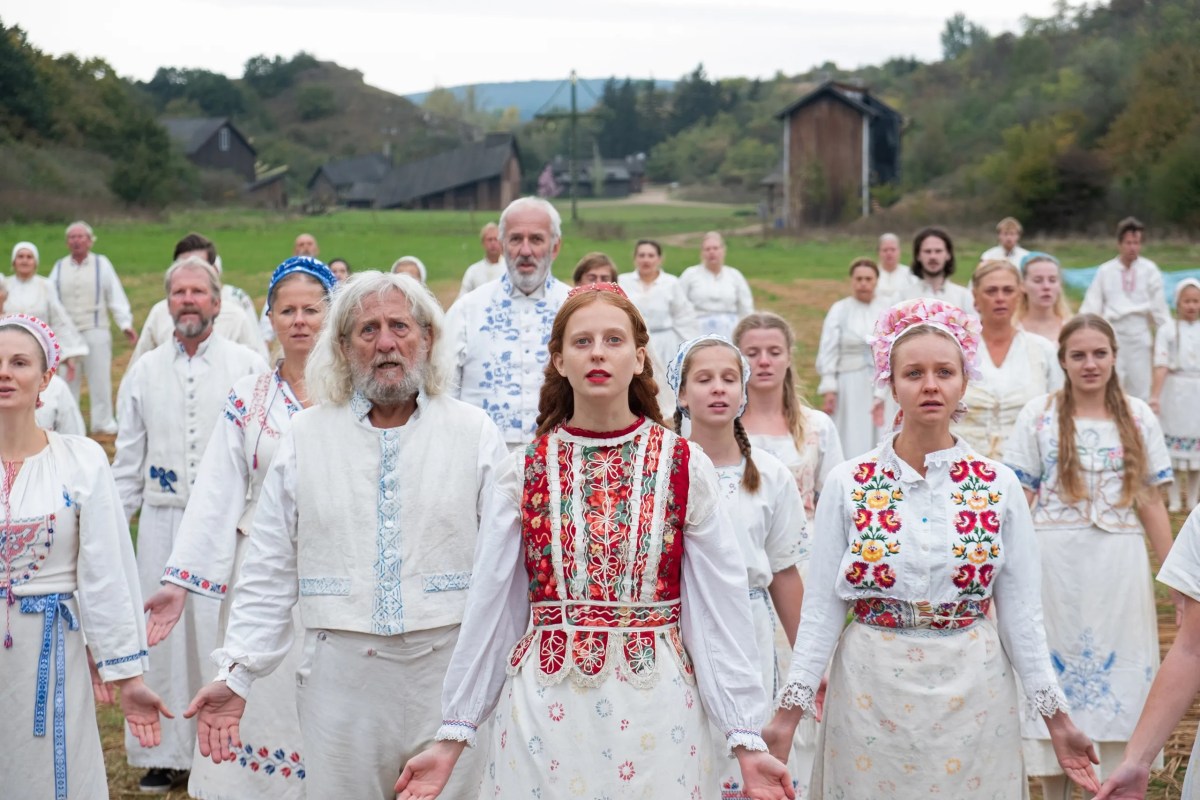
Be forewarned: there are scenes in Midsommar that you’ll never be able to get out of your mind’s eye.
Florence Pugh plays Dani, a woman who recently suffered the devastating loss of her entire family. In an attempt to snap out of her grief, she tags along with her boyfriend, Christian (Jack Reynor), on his planned trip to Sweden with some friends. The group of five travels to a village called Harga to attend a midsummer festival, but they soon learn they’re really participating in an ancient pagan ritual from which not everyone will return.
Dani hides her grief from the others, but when two of the village elders gruesomely throw themselves off a cliff in a ritual witnessed by everyone, she (understandably) starts to unravel. It doesn’t help that Christian is the world’s worst boyfriend, forgetting her birthday and generally ignoring her despite her vulnerable state.
Then, one by one, the Americans start disappearing. On the day of the Maypole dance, only Christian and Dani remain, and believe it or not, that’s when this train really goes off the rails.
Ingrid Goes West (2017)
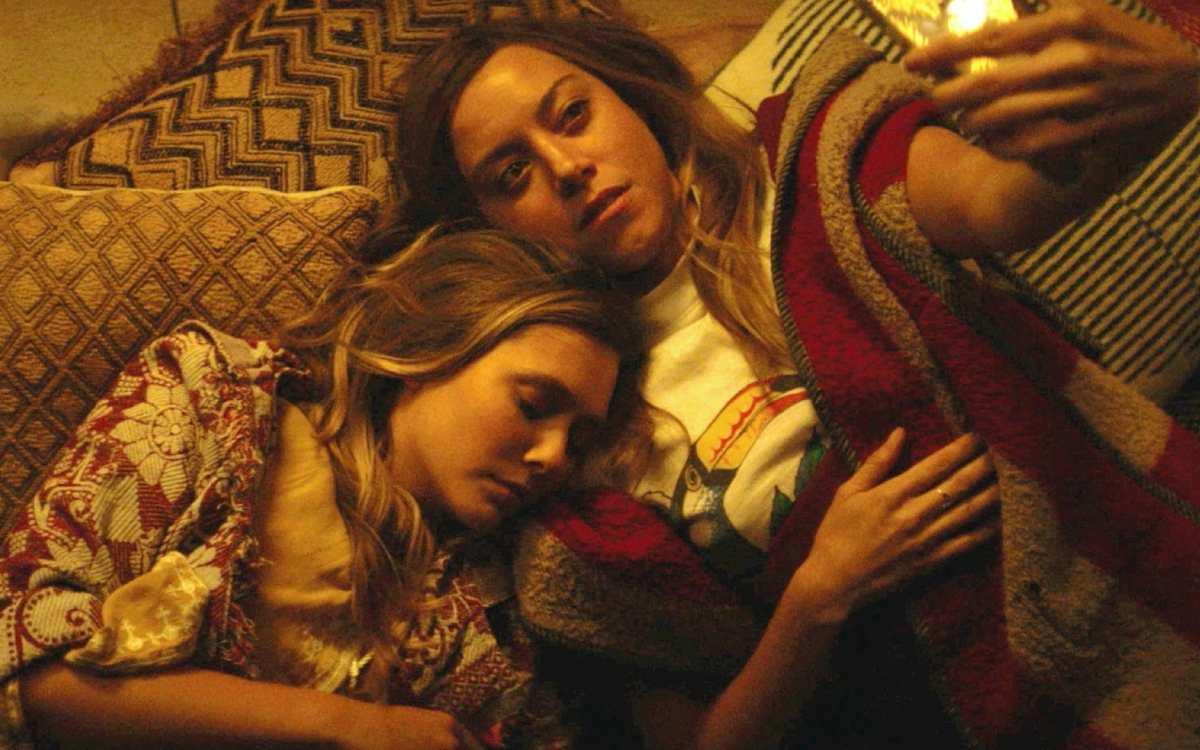
While not a horror movie per se, Ingrid Goes West is a cautionary tale about internet culture that leaves viewers with a vaguely unsettled feeling that truly lingers.
Ingrid (Aubrey Plaza) is another character who’s grieving a dead loved one, and she has a history of embarrassing herself in public. She’s a loner who spends way too much time stalking influencers on social media. When she becomes obsessed with glossy influencer Taylor (Elizabeth Olsen), she uproots her life and moves to L.A. to get a closer look. As she becomes “friends” with the woman, viewers get an unflinching look at how superficial Taylor’s lifestyle truly is and how difficult it is for “normies” like Ingrid to fit in.
By the time the movie comes to a close, Ingrid has hit rock bottom … which ironically lands her right where she always wanted to be.
Get Out (2017)
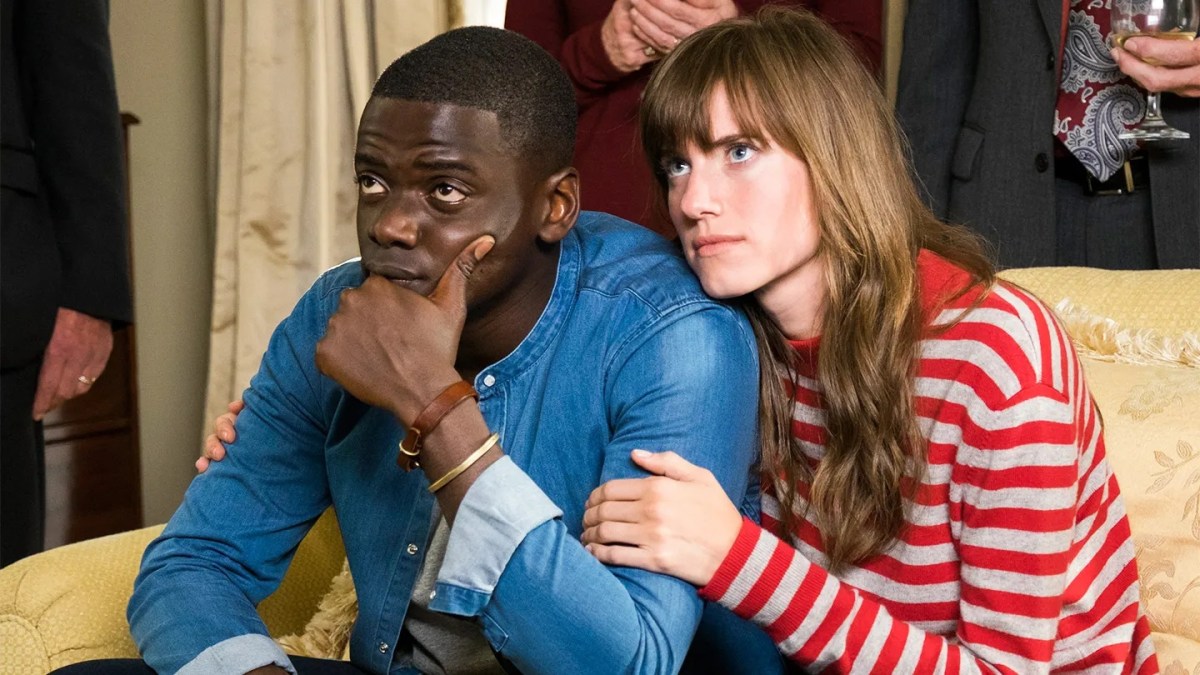
In Get Out, it’s finally time for Chris (Daniel Kaluuya) to meet his girlfriend Rose’s (Allison Williams) family. They travel to Rose’s family estate in the country, where Chris realizes the only other African Americans present are the servants. Not only that, but the servants behave strangely, and the questions Rose’s family asks are both intrusive and racially insensitive. Her mom (Catherine Keener) even hypnotizes him without his consent.
Chris soon learns that the family is throwing a big annual family party, and he’s the unwitting guest of honor. This is an entertaining and important film that explores modern racism, wealth inequality, and medical ethics in a brand new light.
(featured image: Searchlight Pictures)



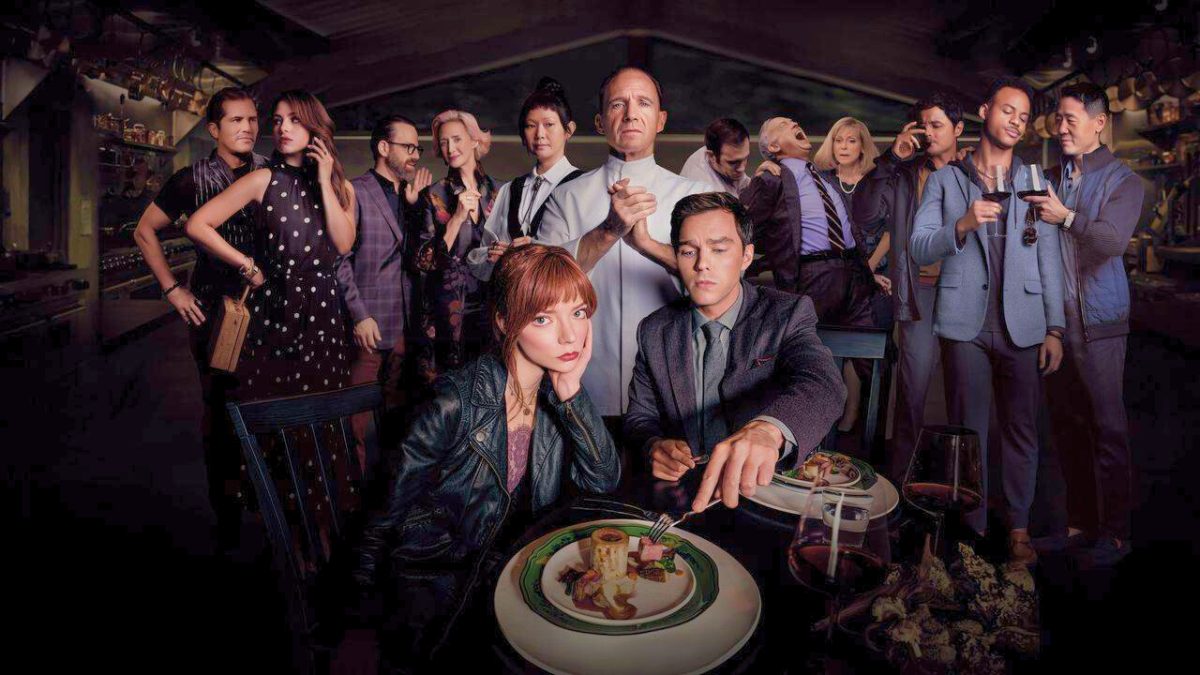
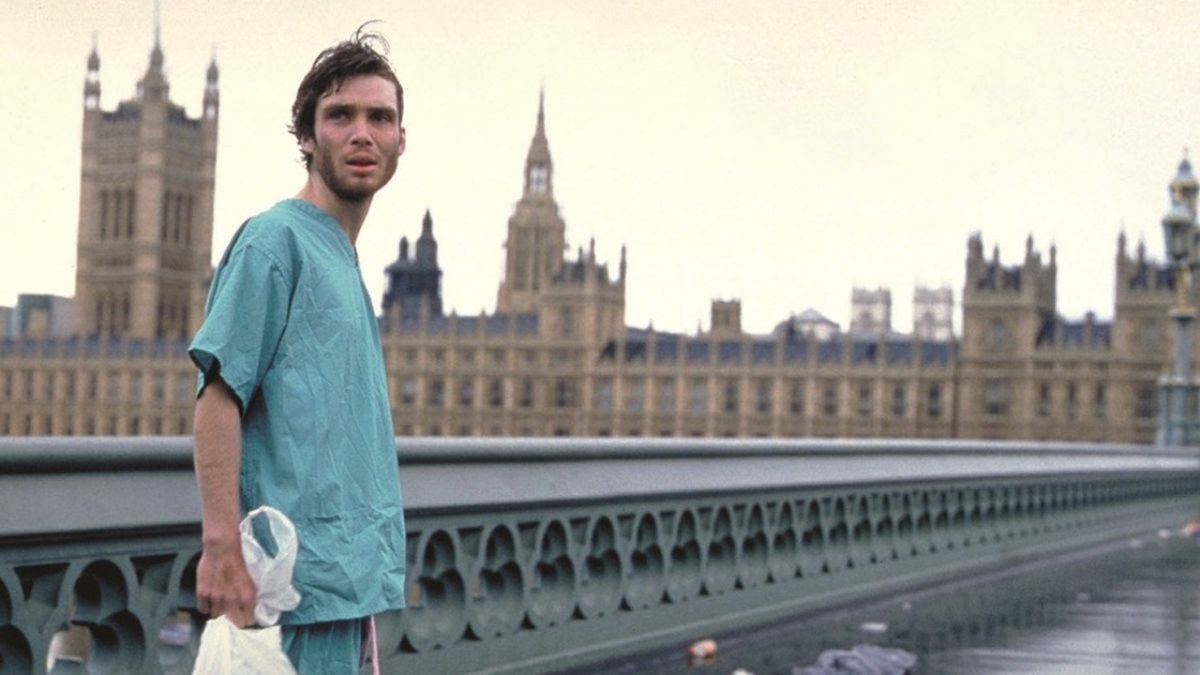
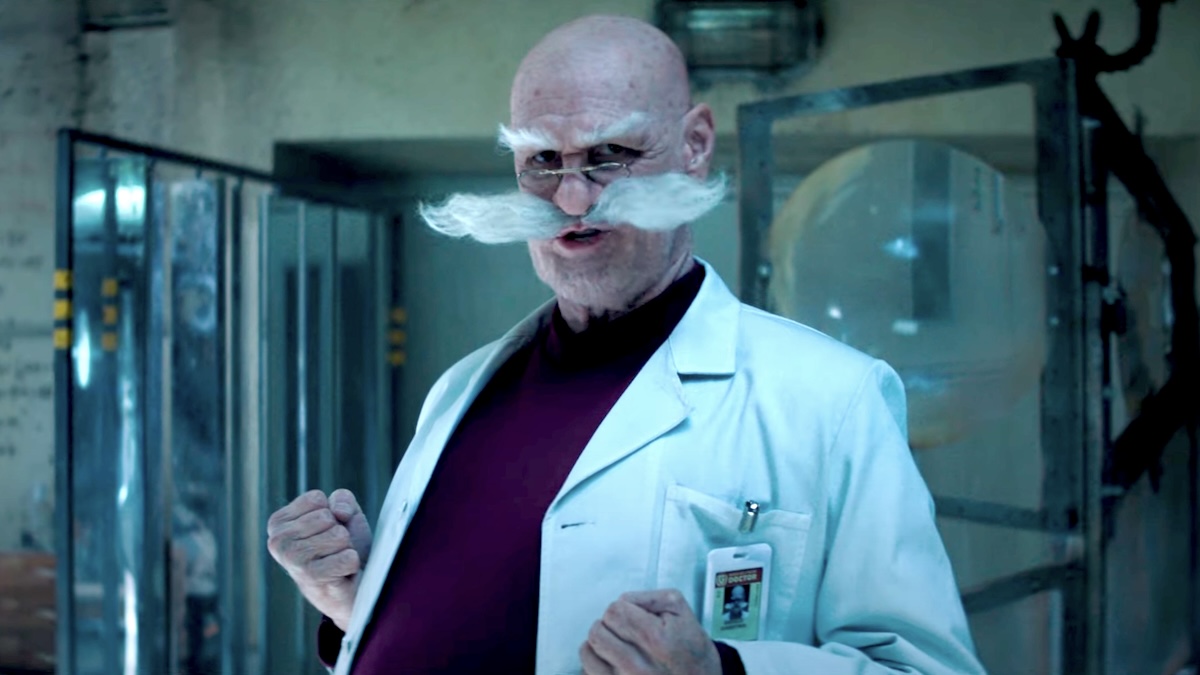

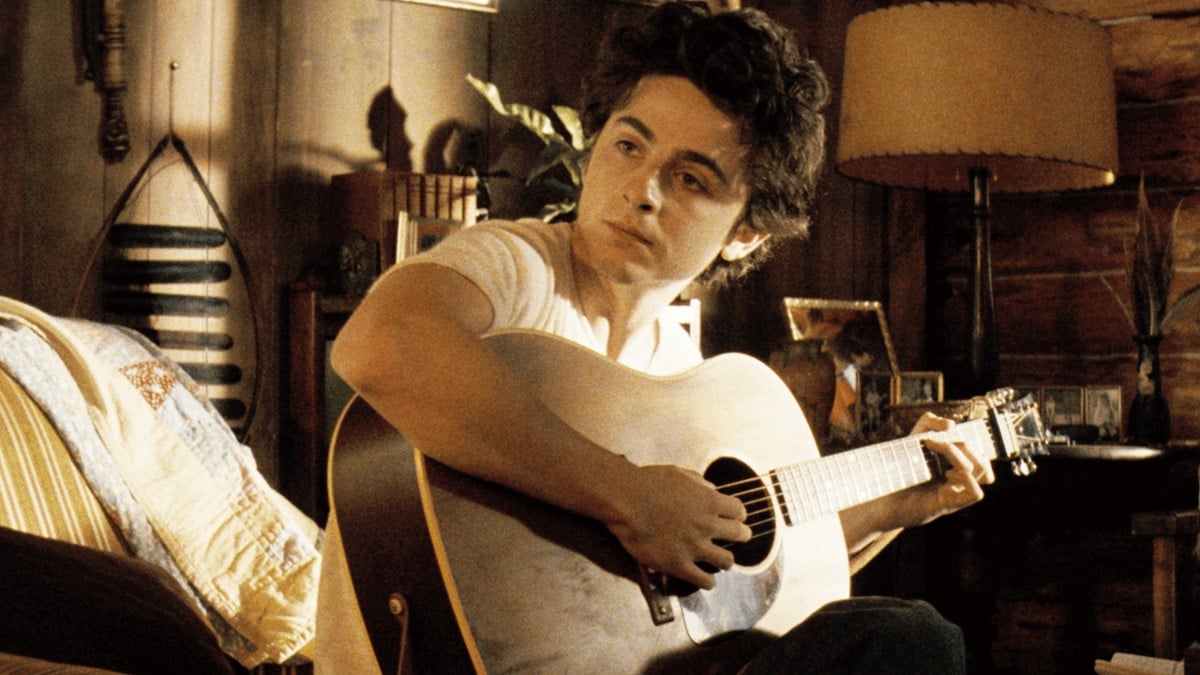
Published: Nov 6, 2023 11:45 am